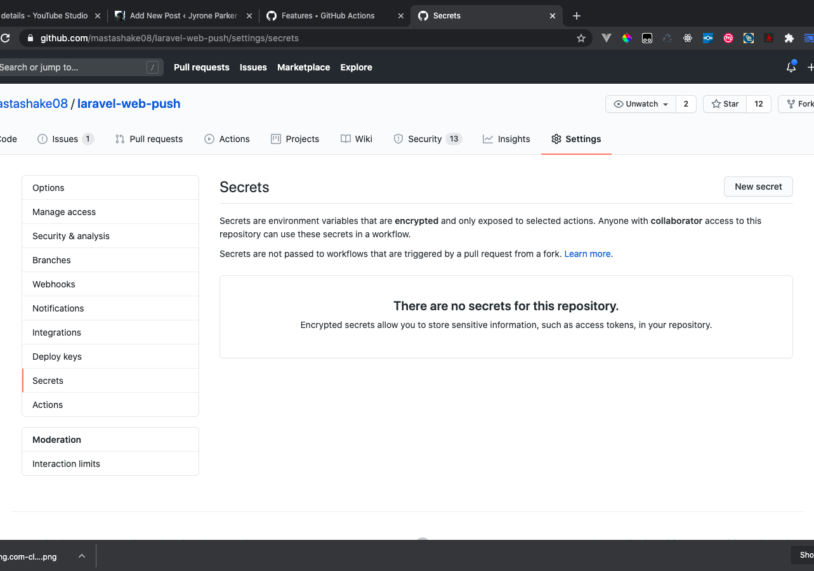Github Actions Make CI/CD A Breeze
I will be the first to admit that even though I have an adequate DevOps and programming knowledge base; I have been reluctant to embrace best practices such as testing and employing continuous integration. I finally got over it once I realized that I was wasting time and losing money by NOT doing these things. Since I use Github for over 90% of my projects I decided to give Github Actions a try.
GitHub Actions makes it easy to automate all your software workflows, now with world-class CI/CD. Build, test, and deploy your code right from GitHub. Make code reviews, branch management, and issue triaging work the way you want.
Github actions allows for ultimate flexibility for continuous integration and deployment.
With Github Actions you can choose when deployments run based on triggers such as: push, merge, comments and more. In this example I will show you how to add a simple .yml file that will run your Laravel tests and push to Laravel Forge upon successful tests.
Enabling Github Actions In Your Project
The first thing that must be done in any project to use Github Actions is to add the .github/workflows/ci.yml file this file will house the YAML script that will run on your deployments. In my example the code looks like this
on: push
name: CI
jobs:
phpunit:
runs-on: ubuntu-latest
container:
image: kirschbaumdevelopment/laravel-test-runner:7.3
services:
mysql:
image: mysql:5.7
env:
MYSQL_ROOT_PASSWORD: password
MYSQL_DATABASE: test
ports:
- 33306:3306
options: --health-cmd="mysqladmin ping" --health-interval=10s --health-timeout=5s --health-retries=3
steps:
- uses: actions/checkout@v1
with:
fetch-depth: 1
- name: Install composer dependencies
run: |
composer install --no-scripts
- name: Prepare Laravel Application
run: |
cp .env.ci .env
php artisan key:generate
- name: Run Testsuite
run: vendor/bin/phpunit tests/
- name: Deploy to Laravel Forge
run: curl ${{ secrets.FORGE_DEPLOYMENT_WEBHOOK }}
The first line “on” defines the trigger that will run the script, in this case it is whenever we push to our repo. Next we give it a “name” which in this example we call CI. Afterwards we define “jobs” that will run when the Action is called, in this example we will run phpunit on a linux machine running the latest ubuntu OS running a laravel 7 docker image. Next we define the services, we only need to use MySQL so we bring in that image. Lastly we define the steps :
– checkout the latest push
– install the Composer dependencies
– copy the .env.ci to the .env and generate the encrypted application key
– run the tests
– deploy to Laravel Forge
# database
DB_CONNECTION=mysql
DB_HOST=mysql
DB_PORT=3306
DB_DATABASE=test
DB_USERNAME=root
DB_PASSWORD=password
Above is the .env.ci file. In the last step we use secrets. Secrets are a way for you to put sensitive information like keys in your repository settings without putting them in source control.

After each push now it will run the tests and if they pass will deploy to Laravel Forge. Watch my YouTube video for a more in depth explanation!
